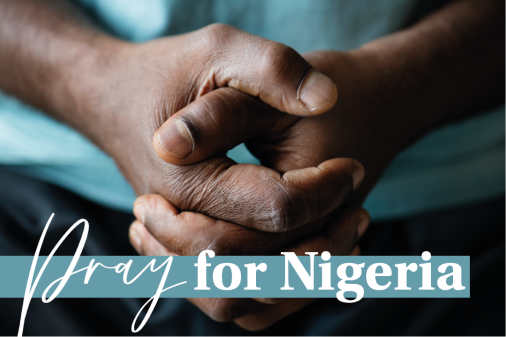
West Africa is predicted to be a persecution hotspot in 2022, according to Release International.
The charity, which supports persecuted Christians worldwide, warned that Islamist extremists are gaining ground across Nigeria and the Sahel region of sub-Saharan Africa.
Christians are at risk of bombings, killings and kidnappings. Places of worship and schools are also being targeted.
The attacks are being carried out by terrorists belonging to Boko Haram and the Islamic State, as well as radicalised Fulani militia.
"Fulani militants destroyed more than 50 villages and displaced nearly 5,000 Christians," said a Release partner.
"The attacks by the Fulani now include kidnappings for ransom. Churches, church leaders and Christian communities remain the primary targets."
With campaigning for the 2023 election set to commence next year, Release predicts an increase in attacks by terrorists.
The violence has also spread into the northern regions of Burkina Faso, where jihadist attacks on Christians have led to the closure of churches, forcing believers to worship in secret.
The wave of violence in Burkina Faso, which is being blamed on the Islamic State, is expected to worsen after the recent withdrawal of French troops from the area.
"The situation facing Christians in Burkina Faso is now similar to Nigeria," said a Release partner.
Other countries of concern include Afghanistan, where many Christians are in hiding after the Taliban takeover in the summer, and North Korea, which is facing another famine.
A Release partner in Afghanistan said Christians are afraid of violence at the hands of the Taliban, and that they fear being reported by family members or neighbours.
The hardship experienced by Christians there comes on top of the economic crisis and food shortages afflicting all Afghans.
Release CEO Paul Robinson said: "In 2022, there is a very real threat of higher levels of violent persecution in Afghanistan.
"Our partners tell us that Christians who are unable to follow the outward forms of Islam, such as praying at the mosque and saying the shahada, the Islamic profession of faith, will stand out more clearly.
"This increases their vulnerability to persecution and the pressure on them to conform."
In North Korea, Release fears that further instability driven by the pandemic will lead to greater persecution of Christians.
Release partner Dr Eric Foley says that in spite of brutal persecution, demand for Bibles in the hermit Communist country has increased during the pandemic and that door-to-door searches by the authorities have decreased because of the risk of infection.
"Let's pray that not only the gospel continues to spread, but that the church beyond is encouraged and strengthened by the witness of North Korea's underground Christians," he said.
Release also raised concerns about the plight of Christians in India, where Hindu nationalism is on the rise and more states are imposing anti-conversion laws.
The laws are intended to prohibit forced conversions but Release says they are being used to prevent any form of Christian witness and are contributing to an increase in attacks by militants on Christians.
"In many nations, we see a rising tide of intolerance towards Christians, accompanied by a rise in violence," said Robinson.
"Islamist militants are becoming more aggressive in Africa, as they attempt to drive Christians from the land.
"Now the violent intolerance of these insurgents is being mirrored in India, where we see right-wing religious nationalists attempting to eliminate the Christian presence in parts of the country.
"The intolerance and persecution is set to get worse with growing food and climate insecurity."













